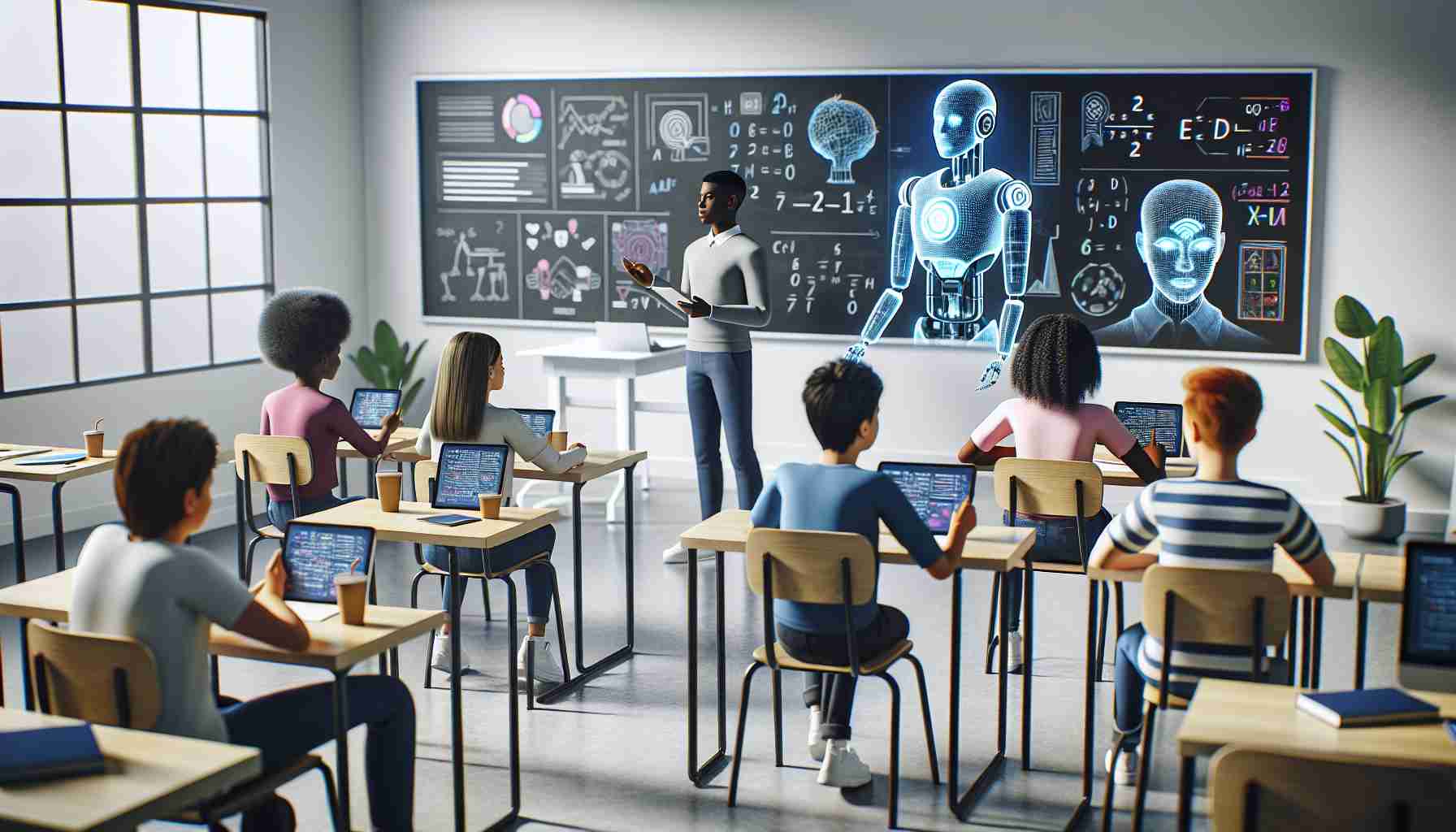A high school administrator advocates for utilizing artificial intelligence as an educational tool rather than solely as a method to detect cheating, emphasizing the importance of trust in the student-teacher relationship. Artificial intelligence detection tools have often been seen as a solution to academic dishonesty. However, they have been countered by concerns about their reliability and the potential harm to relationships within the educational environment.
Through personal experience and monitoring the repercussions of these tools, the administrator has concluded that accusations of cheating based on AI-generated probabilities can cause significant distress. When a student’s work is deemed potentially plagiarized by AI, the trust between the student and the educator can be compromised, even leading to requests for student removal from courses by worried parents.
The focus should not exclusively be on AI’s capacity to detect academic misconduct but rather on the potential of AI to enhance personalized learning experiences. This shift in perspective includes comparing the current use of calculators in exams to a future where AI contributes positively to evaluating student creativity and problem-solving capabilities.
To harness the full benefit of AI in the classroom, the article suggests that schools should establish transparent AI policies, actively involve students in policy development, regularly review these policies to keep pace with technological changes, introduce assessments that are robust against plagiarism, and provide constructive ways for students to recover from academic mistakes.
Schools must navigate the integration of AI in education responsibly, ensuring emotional well-being is protected alongside academic integrity, akin to ensuring the safe use of power tools in a workshop setting.
Summary: Recognizing the impact AI has on the dynamic between students and educators, this article presents thoughtful approaches on how to leverage AI as a beneficial educational resource. It highlights the necessity of clear, student-inclusive AI policies, the importance of evolving these policies with technological advancements, and the need for assessments that encourage authentic student learning, all while maintaining emotional security within the educational community.
Artificial Intelligence in Education – Beyond Cheat Detection to Empowering Learners
The utilization of artificial intelligence (AI) within the education sector is an area of significant interest and investment, poised to transform traditional teaching methodologies and learning experiences. While the initial focus of AI applications in education may have been on cheat detection, a broader perspective reveals an industry ripe with opportunities for AI to enhance personalized learning, engage in adaptive instruction, and revolutionize student-teacher interactions.
Industry Expansion and Market Forecasts
The market for AI in education is expected to grow substantially over the next few years. Industry analyses predict increasing adoption due to the demand for personalized learning, the necessity of efficient learning systems during and post-pandemic, and the pressure on educational institutions to improve performance metrics. This adoption sympathizes with the zeitgeist of the Fourth Industrial Revolution, where technology and automation are fundamentally shifting the landscape of work and education.
Enabling Personalized Learning
AI’s ability to tailor educational content to individual learning styles and paces is unparalleled, offering unprecedented support for students with diverse needs. With AI-enhanced educational tools, students can benefit from customized learning modules that adapt to their progress, helping to identify knowledge gaps and reinforce learning effectively.
Issues Related to AI in Education
However, integrating AI into education is not without its challenges. Privacy concerns, ethical use of data, and the digital divide are significant issues that must be addressed. Ensuring that AI systems are fair and unbiased is another critical challenge, as these systems often rely on data that may inadvertently perpetuate existing inequalities. Educators and policymakers are tasked with navigating these complex issues to leverage AI’s potential benefits while mitigating potential risks.
Encouraging Academic Integrity
Beyond cheat detection, AI can be employed to develop innovative assessment methods that emphasize creative thinking, critical analysis, and problem-solving—skills that are much harder to fake or plagiarize. By shifting the focus from punishment to skill-building, educators can foster an environment that values integrity and encourages genuine learning.
Future Directions
As the technology progresses, the emphasis on AI-enhanced education will likely shift further towards collaborative and interactive learning tools, including intelligent tutoring systems, automated grading, and immersive educational experiences with augmented and virtual reality.
For more information about the role of AI in industry transformation, you can visit the following link: IBM, which provides insights into AI innovations across various sectors, including education.
Overall, by fostering transparent practices and inclusive policy-making, and by nurturing trust and emotional security within educational ecosystems, AI stands not as a sentinel against dishonesty but as a cornerstone tool in creating sophisticated, responsive, and equitable education systems for the future.

